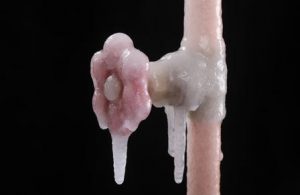According to Almanac.com, winter will be cooler than normal this year. It is predicted that California will have its coldest periods from late November into early December and in early February. Mountain snows will be above normal.
 Cold weather brings challenges. For instance, freezing temperatures can cause plumbing pipes to leak and break. Since water expands when it freezes, becoming ice, that extra pressure can do damage to pipes– especially those in homes that are left vacant during the winter.
Cold weather brings challenges. For instance, freezing temperatures can cause plumbing pipes to leak and break. Since water expands when it freezes, becoming ice, that extra pressure can do damage to pipes– especially those in homes that are left vacant during the winter.
With winter approaching, what are some ways you can best winterize your plumbing pipes for a home that won’t be lived in? Ideally, you’ll want to empty the hot water heater, drain all the water from your pipes, and fill fixtures with antifreeze solution.
To get started, shut off your main water valve as well as the water pump and water heater. Next, open all your drain valves and taps, and leave them open. If you have access to an air compressor, use it to blow excess water out of pipes.
For your hot water tank, you can open the drain valve and let it discharge ‘til empty. Water should go to your floor drain nearby or you might need to attach a garden hose to it, in order to send the excess water where you want it to go. As for the holding tank, drain that, too, and add antifreeze to the jet pump case. If you don’t know what this is, you can look it up on YouTube or call Tonkin Plumbing to come winterize your pipes.
With your toilets, flush ‘em ‘til all the water is gone. You can add antifreeze in case any water is left unbeknownst to you. You can also add antifreeze down your sink and tub drains as needed.
Do you have any pipes outside your walls and windows, on the exterior of the building? If so, you can insulate them with insulation sleeves, wrapping and/or foam pipe insulation to help keep them warm during the winter. Wherever you find cracks in walls, floors and/or ceilings, use some caulk/spray foam to fill in the cracks to prevent cold air from coming in and messing with your pipes.
If possible, keep a heating source on during the winter, even if you’re not going to be there for days or weeks at a time. This helps protect pipes against freezing. Let your faucets drip, which allows water to move rather than getting backed up and freezing easily.
You can buy and use “heat tape” to wrap pipes to protect them from freezing, too.
Should you prefer a professional to come winterize your pipes, call Tonkin Plumbing at 951-784-7586.




